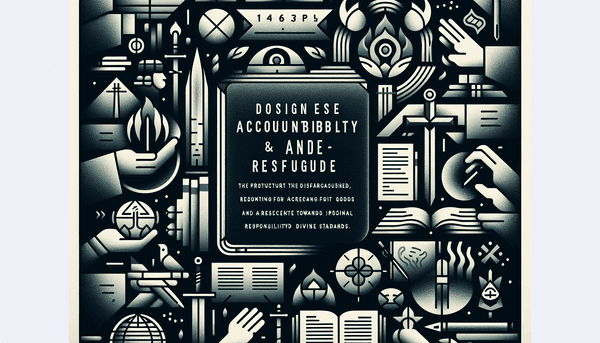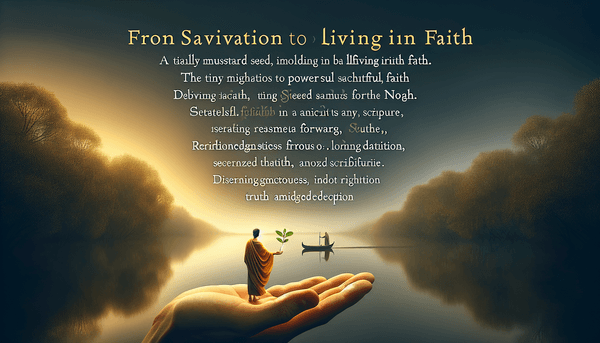Compassion Overcoming Judgment: The Story of the Woman Caught in Adultery
In John 8:1-11, we encounter a narrative that lays bare the human tendency to judge and the divine call to compassion. The Pharisees and teachers of the law present Jesus with a woman accused of adultery, aiming to ensnare Him in a legal and moral quandary. The Law of Moses mandated stoning for such an act, and they sought to test whether Jesus would uphold this harsh sentence. In a masterful display of wisdom, Jesus responds, 'Let any one of you who is without sin be the first to throw a stone at her,' as we are told in John 8:7. This profound statement causes each accuser to introspect, leading them to abandon their stones and their charges, one by one. The scene culminates with Jesus' merciful words to the woman, 'I do not condemn you... go now and leave your life of sin.' Here, the Savior embodies the principle that 'mercy triumphs over judgment' (James 2:13), offering a powerful lesson on forgiveness that challenges us to extend grace as freely as we have received it through faith (Ephesians 2:8-9).
Legacy and Continuity: From Sarah's Death to Isaac's Marriage
The chapters following Abraham's test detail significant events that stitch the fabric of his family's legacy. In Genesis 23, we mourn the death of Sarah and witness Abraham's determination to secure a burial plot, purchasing the cave of Machpelah. This act not only honors his wife but also establishes a site that holds familial importance for generations. As we reflect on these narratives, it is akin to embarking on a spiritual quest through scriptural legacies that shape our faith. The narrative progresses to Genesis 24, where the focus shifts to finding a wife for Isaac. Abraham's servant embarks on this mission and encounters Rebekah, whose kindness and willingness to leave her home to marry Isaac fulfill the servant's prayer. Their union, as described in Genesis 24:67, provides comfort to Isaac and sets the stage for the continuation of God's promises. These accounts emphasize the importance of honoring our predecessors while making pivotal decisions that pave the way for future blessings.
Conclusion
As we conclude our journey through these biblical passages, we are reminded of the profound lessons they impart. From the story of the woman caught in adultery, we learn the value of compassion and the importance of withholding judgment, recognizing that 'all have sinned and fall short of the glory of God' (Romans 3:23). The narratives in Genesis, from Abraham's trial to Isaac's comfort in Rebekah, and from Sarah's burial to the birthright transaction between Esau and Jacob, underscore themes of faith, obedience, and the significance of decisions for future generations. These stories encourage us to live with an awareness of the legacy we are creating and to act with the understanding that our lives are intricately woven into God's grand tapestry. May we continue to draw wisdom from these texts and allow them to inform our actions and beliefs.
FAQ
Q: What is the significance of Jesus' response to the woman caught in adultery?
A: Jesus' response highlights the importance of compassion over condemnation and the need for individuals to reflect on their own shortcomings before passing judgment on others.
Q: How can we apply the lessons from Genesis 22-25 in modern life?
A: These chapters teach us about the value of faith in the face of trials, the importance of making decisions with long-term consequences in mind, and the power of legacy in shaping future generations.
Q: What does the story of Esau and Jacob teach us about priorities?
A: The story shows that our immediate choices can have profound and lasting effects on our lives and highlights the importance of valuing long-term blessings over immediate gratification.
Q: How does John 8:1-11 demonstrate Jesus' approach to sin and judgment?
A: The passage illustrates Jesus' focus on mercy and redemption rather than punishment, emphasizing the potential for change and the opportunity to lead a renewed life free from past transgressions.






